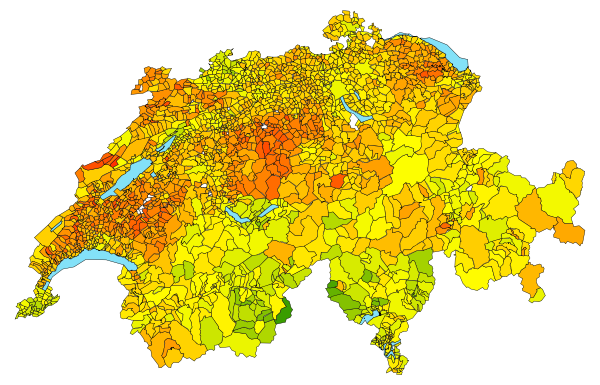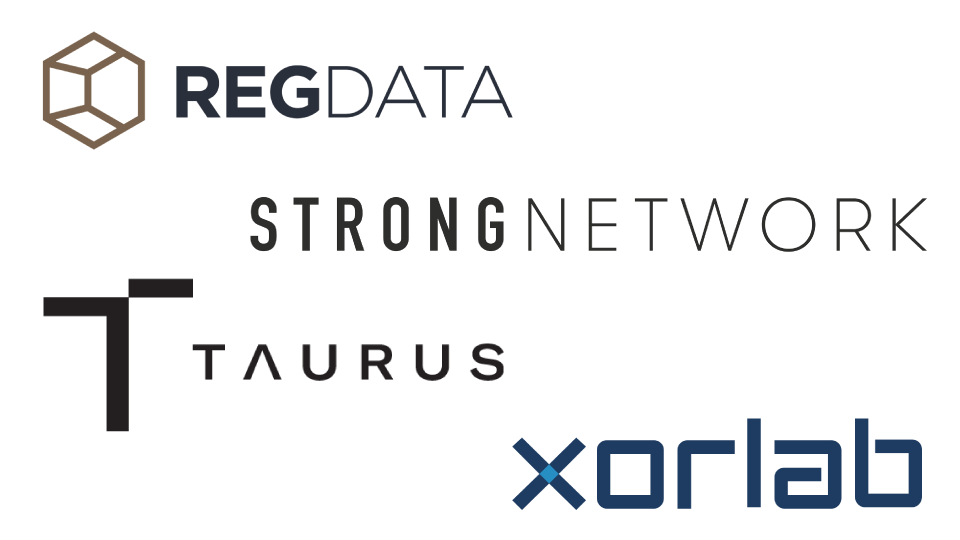
Digital activities represent around 4-5% of CO2 emissions, estimate several studies. And cryptocurrencies, like Bitcoin, are amongst the most energy consuming activities: far ahead of streaming and email exchanges. The podcast “Le Point J” tries to understand why.
In communication systems, there are many tasks, like modulation recognition, for which Deep Neural Networks (DNNs) have obtained promising performance. However, these models have been shown to be susceptible to adversarial perturbations, namely imperceptible additive noise crafted to induce misclassification. This raises questions about the security but also the general trust in model predictions. In this project, we propose to use adversarial training, which consists of fine-tuning the model with adversarial perturbations, to increase the robustness of automatic modulation recognition (AMC) models. We show that current state-of-the-art models benefit from adversarial training, which mitigates the robustness issues for some families of modulations. We use adversarial perturbations to visualize the features learned, and we found that in robust models the signal symbols are shifted towards the nearest classes in constellation space, like maximum likelihood methods. This confirms that robust models not only are more secure, but also more interpretable, building their decisions on signal statistics that are relevant to modulation recognition.
Cyber security information is often extremely sensitive and confidential, it introduces a tradeoff between the benefits of improved threat-response capabilities and the drawbacks of disclosing national-security-related information to foreign agencies or institutions. This results in the retention of valuable information (a.k.a. as the free-rider problem), which considerably limits the efficacy of data sharing. The purpose of this project is to resolve the cybersecurity information-sharing tradeoff by enabling more accurate insights on larger amounts of more relevant collective threat-intelligence data.
This project will have the benefit of enabling institutions to build better models by securely collaborating with valuable sensitive data that is not normally shared. This will expand the range of available intelligence, thus leading to new and better threat analyses and predictions.
Current digital trends and innovation, including artificial intelligence, cybersecurity, data privacy, blockchain and digital trust, are rapidly changing and disrupting the way donors, employees, and beneficiaries interact with each other. Technology can be a powerful tool for philanthropic and non-profit organizations, accelerating their digital transformation through automating and streamlining business processes, using digital platforms, and leveraging data and analytics in new ways that enhance their efficiency and social impact.
This Monday I presented the following article. It discusses blockchains shortcomings. Even if it has been written in 2018, it is still very up-to-date… What follows here is a very opinionated piece. As such it reflects the journey I did in blockchains over the past 6 years. And I’m sure I missed out a lot (…)
Concurrent programming is one the oldest and hardest issues in the Computer Science Book. For years, we have been using locks, big threads sharing the minimum, using optimistic reasoning for “how data will be updated”. And we are still stuck with the same issues of some part of the code “failing” to use the updated (…)

On March 7, the next Swiss referendum vote will be held, with votes on a ban for full face coverings, the e-ID Act, and the economic partnership agreement with Indonesia. As this national vote approaches, the EPFL election prediction tool, Predikon, is rolling out some improvements with new features.
We’ve been looking at the very nice https://gather.town and played around with it. Instead of having a fixed view of all participants, you can walk around and ‘meet’ different persons in gather.town. You can edit the space your liking. It looks very much like a very old-school Zelda: What I liked a lot about it (…)
The management of IT infrastructure is a constantly evolving topic. A very interesting concept that emerged in the last decades is the idea of infrastructure as code: instead of configuring servers in an artisanal fashion, the process is formalized into definition files, which are then automatically “executed”. There are multiple advantages, notably: The files always (…)
Code formatting is the most known instance of bikeshedding: everyone has a different opinion on it and nobody is willing to compromise. Do you remember the hours-long discussions on using tabs versus spaces? Where to add empty lines? Alignment of fields? For some years now, many languages provide their own code formatter, Go has gofmt, (…)

EPFL Professor Matthias Grossglauser has been awarded the grade of Institute of Electrical and Electronics Engineers Fellow, a notable recognition given to less than 0.1% of voting members annually.
Please click below for more info.
On the 7th of March the Swiss population will vote on a law the Federal Council and the Parliament have prepared establishing an identification system recognized by the Confederation: the e-ID. Opportunities that arise through digital identification will not only depend on a country’s implementation but also on the trust which its citizens have in its government and institutions. During the week of the 8th to 12th of March, which follows the referendum, we would like to
– discuss the eID law and compare it to the one already implemented by other countries,
– discuss the population’s trust and willingness to adopt a national eID,
– get the perspective of a Swiss Consumer group and learn about the tech implementation and perspective of a digital ID provider,
– hear researchers’ point of view on the implementation challenges, possible solutions and research trends.
Finally, we will try to identify and frame a challenge / use case on which the eID workgroup can solve with the support of research.
Please note that this is a C4DT community event only.

While votes seem to yield increasingly surprising results, such as the election of Donald Trump in 2016 or the Brexit vote in the UK defying pre-vote polls and initial vote counting predictions, Swiss vote results are swiftly being predicted by Predikon. We will follow the evolution of the project until the next vote, which will take place on March 7th. An article every month will enable you to observe the evolution of the project, (almost) live, accompanying Victor Kristof in the improvement of Predikon.
C4DT’s Factory provides a hands-on technical training for C4DT partners on a tool called Calypso. This tool allows to store secrets on a blockchain, and to dynamically update the access control. The hands-on training has been initiated by a request from SICPA. They were looking for a way to store the private keys used in (…)
During this event the 4 associate partners, who joined the C4DT as part of the C4DT start-up program, will present themselves to the C4DT community. For two years Regdata, strong.network, Taurus and Xorlab will complement the already diverse group of partner companies through their start-up perspective and collaborate and share insights on trust-building technologies. Virtually meet them, learn about their activities and ask questions and discuss with your start-up(s) of interest in 4 concurrent break-out sessions.
This is a C4DT community event only.
This article looks into the optimizations of the golang compiler with regard to different usage of structs. It answers the following questions: Does it avoid unnecessary structure copies? Does it inline where necessary? To answer theses questions, I wrote a small example and decompiled it to see how well it behaves. For all the examples, (…)

We are excited to announce the launch of the C4DT start-up program. 4 start-ups have already been selected to join the C4DT community, consisting of 13 partners and 34 EPFL laboratories, to collaborate and share insights on trust-building technologies. For two years Regdata, strong.network, Taurus and Xorlab will complement the already diverse group of partner companies through their start-up perspectives. Their agility and innovation has permitted these start-ups to differentiate themselves in their respective fields. Please click below for more information.
We are looking forward to an exciting and fruitful collaboration.
The C4DT/Factory works to bring EPFL’s great ideas to our partners. We do so by working on the existing code created in the labs. Because most of the code written in the labs has the goal to create graphs in a paper, it is not directly usable in another project. For this reason we created (…)
Today, a global digital society is emerging through the transfer of data abroad on a massive scale. Some states, however, seem to be returning to national isolationism, encouraging local storage solutions so as to be less dependent on foreign infrastructures and platforms. Switzerland is debating the adoption of a ‘Swiss Cloud’ for certain categories of data, while our neighbors are considering a European strategy. In addition to the geopolitical dimension, this massive transfer of data in Switzerland and abroad raises questions concerning protection of our privacy and control over our data. This conference will examine the role of multilateralism in the search for global responses.
The Digital Transformation Office of the University of Geneva invites you to join its e-conference on “Control over our data: what role for international Geneva on data governance?” on Wednesday 18th of November.
For more information please click below.
We are delighted to announce a new date for the Data 2025 Conference which will take place in an online format.
This conference, organized jointly by the Graduate Institute Geneva’s Center for Trade and Economic Integration (CTEI) and the Center for Digital Trust (C4DT), will discuss what data is, based on technical and economic realities. It will start with the present, but look forward to the opportunities, and the challenges, that new technologies will bring for the year 2025.
For more information please click below.
Some notes from https://lethain.com/managing-technical-quality/ – most of the comments are copy/pasted, so ‘I’ is the author… In italic some more C4DT-specific notes. Technical quality is a long-term game. There’s no such thing as winning, only learning and earning the chance to keep playing. Do the quick stuff first! Hot Spots Before defining new processes, measure (…)
Delivered by the Factory in collaboration with the Academy, these trainings are designed for researchers who want to adopt the best practices in their day-to-day work.
Organized by the Academy and delivered by accomplished EPFL professors and seasoned industry professionals. These courses are designed for those who want to better understand ICT and Digital Trust topics.
The Academy team creates tailor-made courses and trainings for the C4DT partners. The team offers content development and course co-creation, and handles all the logistics and operational aspects of the course organization.




